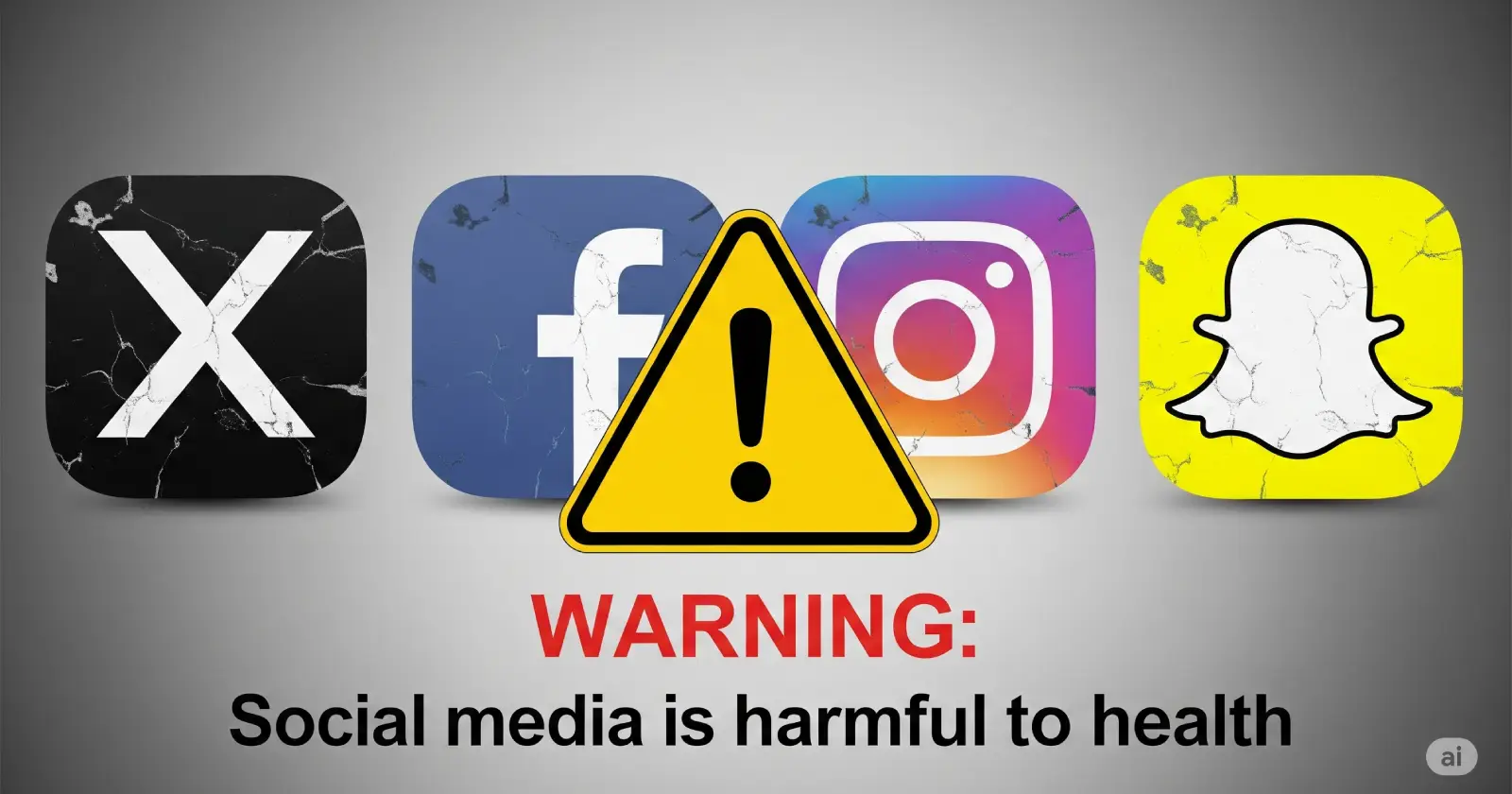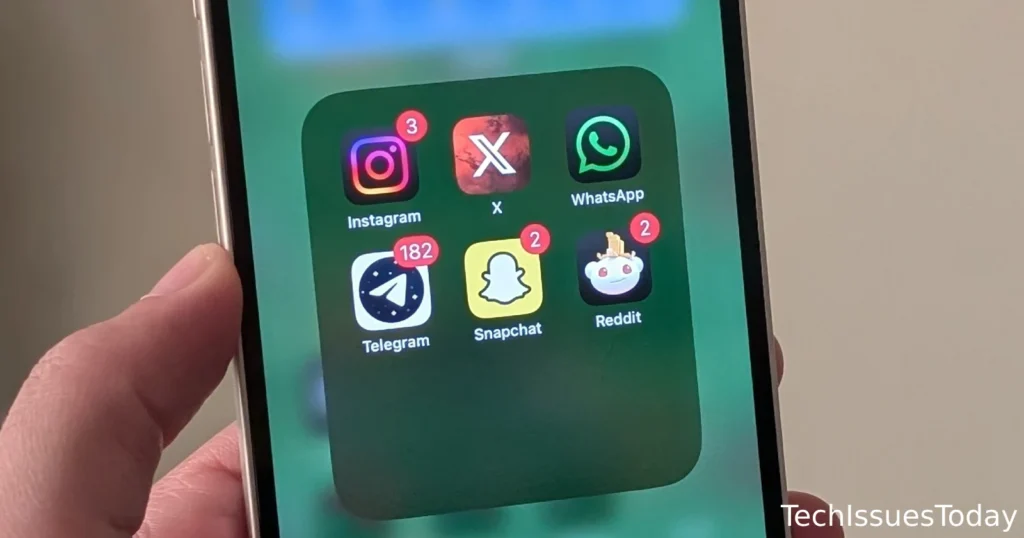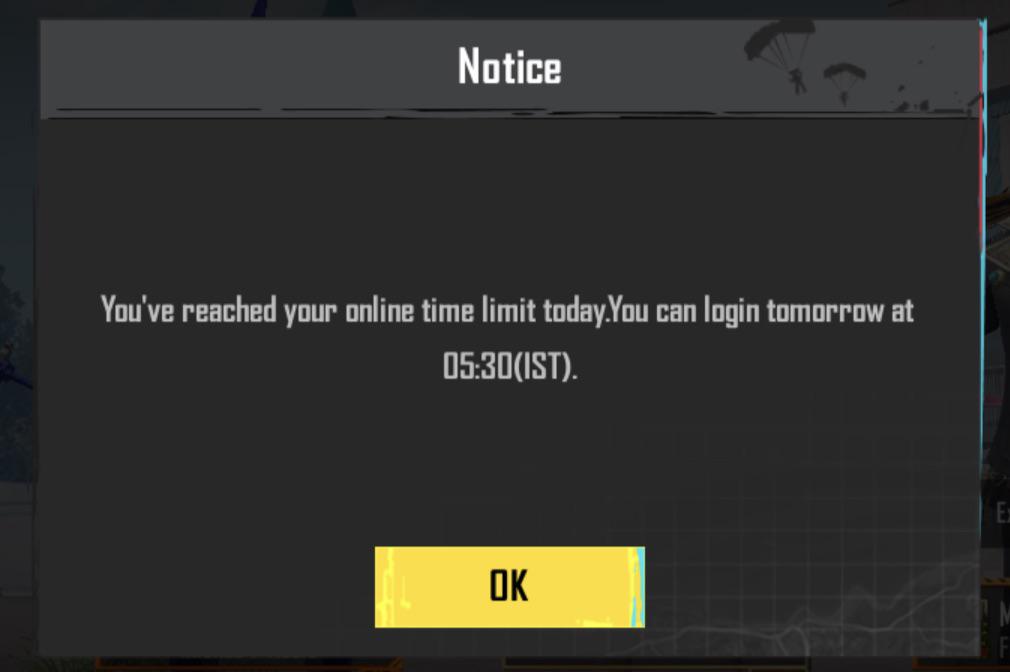It might sound like something out of a near-future novel, but very soon, when you open your favorite social media app in Minnesota (or maybe even in New York, California, or a handful of other US states), you could be greeted by a pop-up message right at the login screen. A warning label that’s hard to ignore, telling you something you might not want to hear: “Using this platform could harm your mental health.”
We’re not just talking about disclaimers buried in fine print but actual health warnings, modeled after the ones you see on cigarette packs and alcohol bottles. They’re designed to grab attention and make you think twice. This isn’t law just yet everywhere, but in Minnesota, it’s coming. Real soon!
Minnesota is the first US state to actually pass a law requiring social media platforms to display these kinds of warnings. Think of it as a blinking red light before you jump onto your feed. Starting July 1, 2026, anyone logging onto social media in Minnesota will see a message, crafted by the state, reminding them that extended social media use can contribute to anxiety, loneliness, self-harm, suicidal thoughts, and eating disorders. Especially for kids and teens. The exact words aren’t clear yet, but you get the point.
Democratic state Representative Zack Stephenson, the law’s main sponsor, puts it bluntly: the evidence is there, and these platforms have an addictiveness (whether by design or accident) that is proving harmful for a growing number of people. The actual wording isn’t set in stone yet, but it’s meant to be hard-hitting and hard to dismiss. And if social media companies don’t comply? They could be investigated and fined by the state’s attorney general.
Fast forward to now, some students support the move. At a high school in Minneapolis, there’s already a club focused on digital well-being. Students there use reminders before logging in to social media. Kanavati, a supporter of the law, says people need “a chance to pause and ask: What am I really doing here?” Another student, Evangeline Fuentes, believes the labels won’t change everyone, but could nudge some to reconsider their habits.
Unlike other states’ efforts (often blocked by courts over tough age checks), Minnesota’s approach is about making risks clear, not keeping people out. These very visible labels will also include links to resources like the Suicide and Crisis Lifeline. It’s not a cure-all, but supporters hope it prompts reflection.
Other states are catching on. New York has passed a similar bill, just waiting for the governor’s signature. There, the warnings would target features that keep people glued to their screens, things like infinite scroll and like counters. California’s proposed law takes this even further with giant “black box” warnings — lasting up to 90 seconds if you use an app too long. It reminds me of how BGMI (PUBG Mobile) in India warns players about the time spent in the game every couple of hours, and logs them out after completing six hours a day.
That said, Texas and Colorado (which already passed a version) are weighing in too. All of this is part of a bigger global push to rethink social media’s impact on mental health.
Last year, the US Surgeon General urged Congress to require such warnings everywhere, pointing to studies that show teens on social media for more than three hours daily face double the risk of mental health issues. Advocacy groups like Fairplay say Big Tech has become as dangerous, in some ways, as Big Tobacco was decades ago. The message from Washington: something has to change, even if Congress hasn’t moved yet.
Of course, plenty of critics worry these laws infringe on free speech by forcing companies to repeat government messages — especially since the links between social media and mental health aren’t universally agreed on. Industry groups promise to fight, and past research shows that warning labels sometimes backfire. Others argue the real danger is in the design of the platforms themselves, not just what they tell users.
But this rush for limits and restrictions isn’t exclusive to the US. Australia plans to ban social media, including YouTube, for kids under 16. France, Greece, and Denmark are pushing for bans for those under 15, and France already requires parental consent for young users. The EU is also working on private-by-default accounts and age checks. Meanwhile, the UK’s Online Safety Act is already facing massive backlash.
While protecting kids online is the correct step, I’m one of the thousands who are against generalized laws that grant governments the power to regulate what people can or cannot do online. Elizabeth Nolan Brown, writing for Reason, argues that mandatory mental health warnings on social media platforms are unconstitutional government overreach lacking scientific backing and pose a threat to free speech rights.
But I’m also open to looking at it from the other side, and I’d be interested to know your take on this. Feel free to drop your thoughts in the comments below.
TechIssuesToday primarily focuses on publishing 'breaking' or 'exclusive' tech news. This means, we are usually the first news website on the whole Internet to highlight the topics we cover daily. So far, our stories have been picked up by many mainstream technology publications like The Verge, Macrumors, Forbes, etc. To know more, head here.




